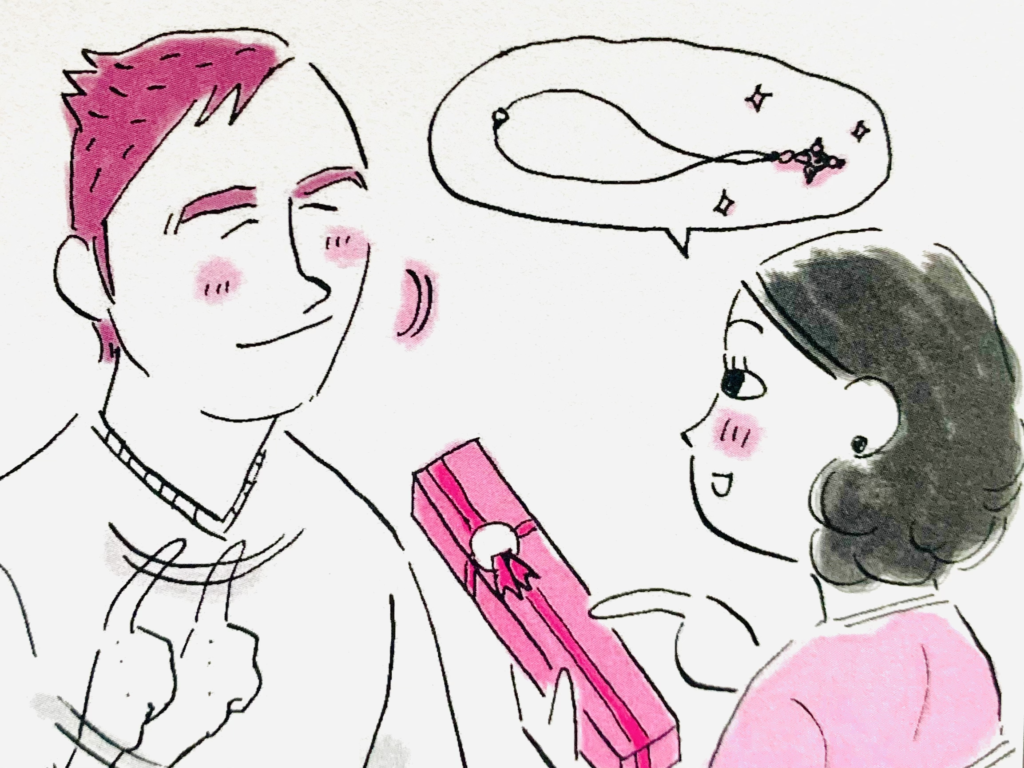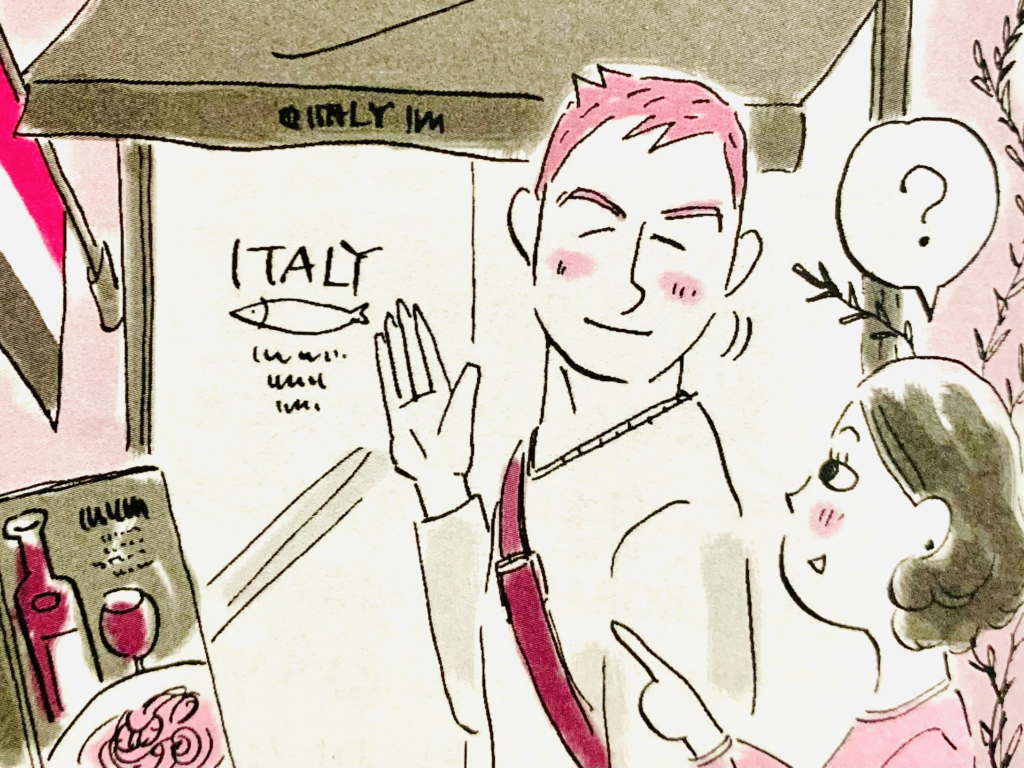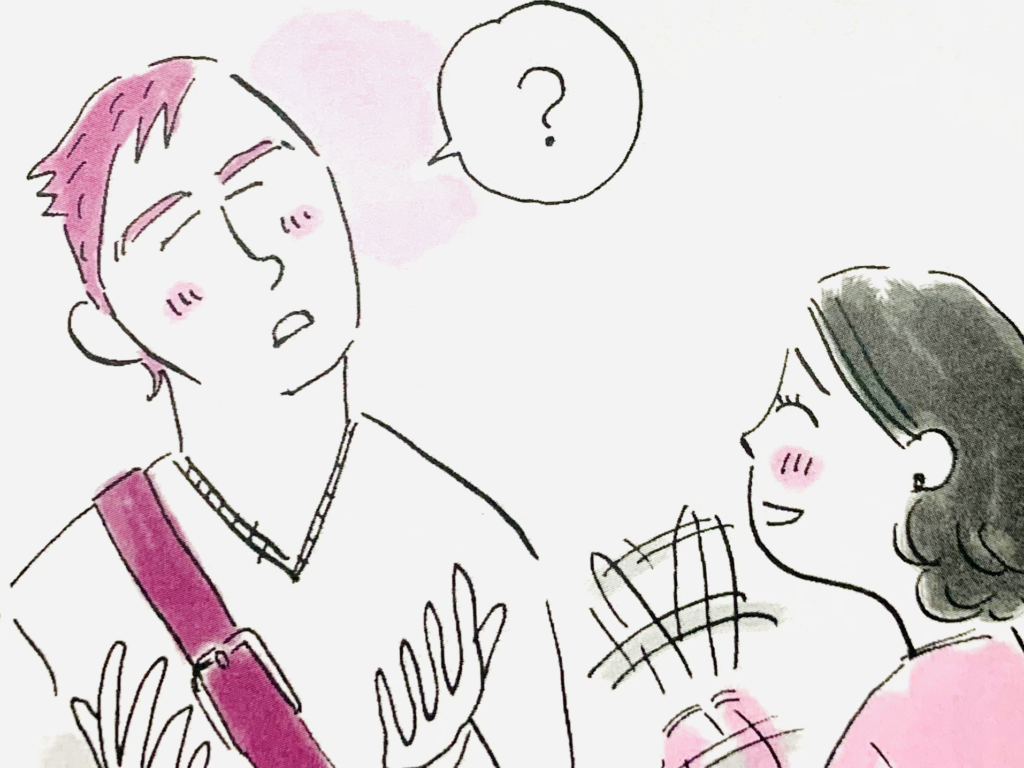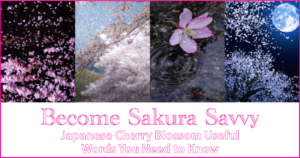English Words are Increasingly Used in Everyday Life - 日常生活でますます使われる英単語
📺 Exploring scenes: Birthday Present - 誕生日の贈り物

John: This is tanjoubi no okurimono.
ジョン:これ、誕生日の贈り物です。
Yui: A birthday present? Thank you.
ユイ:バースデープレゼント?サンキュウ。
John: It's a kubikazari.
ジョン:首飾りです。
Yui: You mean a necklace?
ユイ:ネックレスのことね?


John: Let's go to a shokudou and make a toast with budoushu.
ジョン:食堂へ行こう。ブドウ酒で乾杯しよう。
Yui: You mean make a toast with wine in a restaurant?
ユイ:レストランで、ワインで乾杯ということね?
John: Yui, why do you confirm each word with the English version?
ジョン:ユイ、どうしていちいち英語で確認するの?
Yui: These English terms are much easier to understand.
ユイ:英語の方がわかりやすいの。

🔎 Breakdown the scenes
- Nowadays, "ba-sude- purezennto" or, "tannjoubi purezennto" is used more frequently than "tanjoubi no okurimono"
今では、「誕生日の贈り物」より、「バースデープレゼント」や「誕生日プレゼント」の方がより疲れています。 - Kubikazari, a word that is almost extinct nowadays. The English word, necklace, which is commonly used in Japanese.
首飾り、現在では首飾りという人はほとんどいません。日本語でもネックレスといいます。 - Shokudou is generally used to refer to a cheap restaurant, whereas eating facilities that serve wine are called resutoran. As budoshu is also an antiquated word, wain is used in Japanese.
食堂は一般的に大衆的なレストランを指し、ワインを出す店はレストランと呼ばれます。ブドウ酒も古めかしい言葉で、ワインが日本語として使われています。 - The majority of the Japanese words John uses are no longer in use.
実際、ジョンが学んだ日本語の言葉の多くがもはや使われていません。
Japanese Terms Yielding to English Invaders - 英語に変わる日本語
| English | Japanese commonly used | Japanese rarely used |
| earing | イヤリング (iyarinngu) | 耳飾り (mimi'kazari) |
| necklace | ネックレス (nekkuresu) | 首飾り (kubi'kazari) |
| jecket | ジャケット (jaketto) | 上着 (uwagi) |
| door | ドア (doa) | 扉 (tobira) |
| living room | リビングルーム (ribinngu'ru-mu) | 居間 (ima) |
| toilet | トイレ (toire) | 便所 (benjo) |
| air conditioning | エアコン (eakonn) | 空調 (kuuchou) |
| restaurant | レストラン (resutorann) | 食堂 (shokudou) |
| menu | メニュー (menyu-) | お品書き (oshinagaki) |
| table | テーブル (te-buru) | 食卓 (shokutaku) |
| wine | ワイン (wainn) | ぶどう酒 (budoushu) |
| juice | ジュース (ju-su) | 果汁 (kajyuu) |
| camera | カメラ (kamera) | 写真機 (shashinnki) |
| computer | コンピューター (konnpyu-ta-) | 電子計算機 (denshi'keisanki) |
| photocopier | コピー機 (kopi-ki) | 複写機 (fukushaki) |
| calendar | カレンダー (karennda-) | 暦 (koyomi) |


